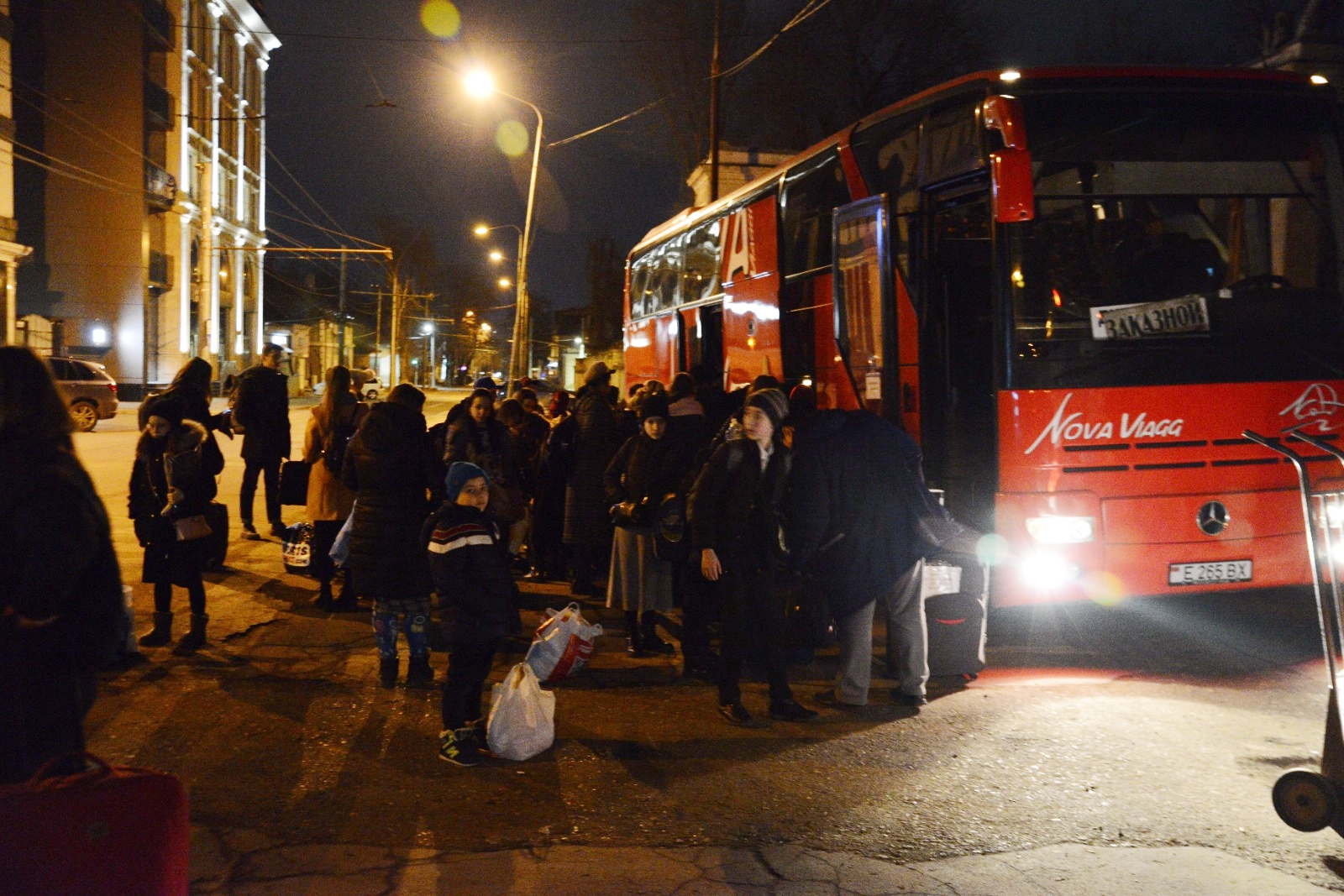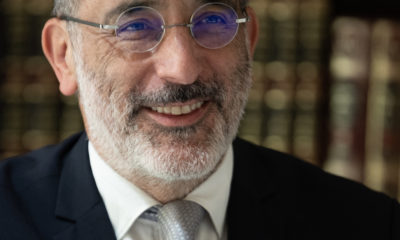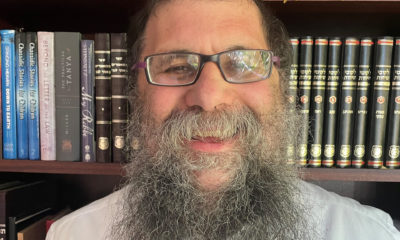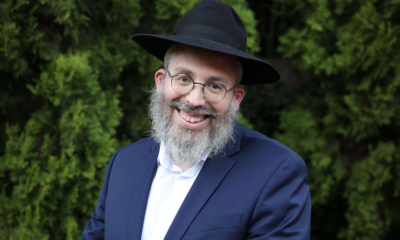
Parshot/Festivals

Modern Exodus gives Passover new meaning
In these unfathomable times filled with devastation, Ukrainian Jewish and other refugees will make an appearance at every Pesach seder worldwide as their exodus from their war-torn homeland gives Pesach new meaning.
Jews dashing for freedom sadly isn’t an unprecedented scene. But the Ukraine scenario is unique as mega logistics are put in place to create sederim for vast numbers of displaced people in far flung places at hotels, resorts, people’s homes, and refugee centres.
For 21 years, the community of the Chabad-affiliated Kyiv Jewish Centre has celebrated Pesach together or at least nearby in the same city. This year, it will commemorate the Jews’ exodus from Egypt in spiritual pockets dotted throughout Europe and Israel. They may be in shelters or in private homes belonging to strangers they have just met or in specially set up refugee centres, but eat matzah and kneidlach they will.
After speaking to Chief Rabbi Dr Warren Goldstein last week about a Pesach appeal for Kyiv’s remaining Holocaust survivors, Kyiv Chief Rabbi Yonatan Markovich and his wife, Inna, have worked around the clock with dozens of dedicated Chabad shluchim (emissaries) in a frenzied spirit of unity.
From the Markovich’s temporary home in Tel Aviv, they have pulled out all the stops to try and help their own battered community mark this year’s Passover – a big deal annually.
“This is the first time we’ll be separated,” Inna said.
The couple will be hosting a seder in Tel Aviv for about 100 refugees from Kyiv. The number of people increases every day, she said. Over the past couple of weeks, with huge help, they have arranged for these refugees in Israel to be accommodated over Shabbos, but are now focusing their efforts on reuniting those who managed to flee their homes in the beleaguered capital city to be together over the week of Pesach.
“For at least some of them, we want it to feel a little bit like home in Kyiv,” she said. For those left behind in Kyiv, the couple, with help from the community and Chabad, have secured three additional locations where members of their community will be able to gather and partake in a traditional seder.
Before they were forced to flee, the couple turned their synagogue’s basement into a shelter crammed with 50 beds and several tons of food, as well as water and fuel. Dozens of people have taken shelter there since the start of the war.
“There will be another seder for about 50 more people at our Jewish school, and 30 people will have a seder at our kindergarten for autistic children,” Inna told the SA Jewish Report this week.
“Since there’s a curfew, those who arrive for a seder won’t be able to travel home afterwards, so they will stay overnight and be together,” she said. The elderly, infirm and Holocaust survivors have had food sent to them, and will receive Passover hampers, generously donated.
Johannesburg-born rebbetzin, Rochi Levitansky, a Chabad shlucha (emissary) from Sumy, Ukraine, and her family experienced their own real-life miraculous exodus as refugees on the run. They made it out of Ukraine in the nick of time after travelling 31 hours to get to Moldova and then to the safety of Israel. Their harrowing escape hasn’t stopped her and her husband, Rabbi Yechiel Levitansky, from reuniting their special community which has been displaced in several parts of Europe and Ukraine.
At the time of going to print, the couple and their large family were headed for Warsaw, Poland, to try to gather as many refugees from their Sumy community together.
“It’s so important for us to bring them back together, for their morale and spiritual well-being. They have been through so much, and will be relieved and grateful to know that by us being there, they’re loved and supported, ” said Rochi this week.
At first, the couple were going to host a large seder in Hungary for other refugees at a resort, but after consideration, they felt it more important to try to piece together families from their community in Sumy.
For those left behind, she said hundreds of “seder bags” had been made which include everything one needs to conduct a seder including, wine, matzah, a seder plate with goodies, and food.
“During COVID-19, we put together these seder bags which were helpful for our community stuck at home. We have extended this idea this year for those unable to travel to communal sederim,” she said.
Chabad-Lubavitch’s Federation of Jewish Communities of Ukraine, directed by Rabbi Mayer Stambler, has prepared more than 50 000 seder kits, replete with shmurah matzah, grape juice, bitter herbs, Haggadah booklets, and everything else needed to celebrate the festival of freedom.
Rabbi Eli Wolff, who works at the Kfar Chabad command centre that’s co-ordinating much of the humanitarian work in and around Ukraine, says the kits are a modified version of what has been sent out for the past two years when COVID-19 lockdowns largely shut down the grand communal seders that for decades were a hallmark of the Passover holiday.
Russia’s invasion of Ukraine has caused more than 4.2 million people to flee to neighbouring countries of Poland, Romania, Moldova, and elsewhere.
The war against Ukrainian civilians and attacks on cities has caused an additional 6.5 million or more people to become internally displaced. They left their homes, but moved within Ukraine to other areas where they hope to be safer.
Countless Jewish organisations large and small from around the world have helped with refugees as the humanitarian crisis unfolds, bringing people together this week for the Passover holidays. The American Jewish Joint Distribution Committee (JDC) will reach thousands of Ukrainian Jews in the country as well as in refugee centres in neighbouring countries.
The JDC has shipped more than two tons of matzah, more than 400 bottles of grape juice, and more than 700 pounds (318kg) of kosher-for-Passover food for use by refugees in Poland, Moldova, Hungary, and Romania. The organisation will also host a series of communal seders, in partnership with local Jewish communities, for refugees in those countries. The JDC will also provide Hebrew and Russian-language Haggadot for refugees attending these seders.
Jewish aid organisations say that there were up to 200 000 Jews living in Ukraine at the time of the invasion. The estimates tend to vary widely depending on how Jewish communities define who is Jewish.
Volodymyr Zelenskyy is the only Jewish president in the world outside Israel. He said it was important not to remain silent in the face of the attacks on the country’s Jewish population and sites of historical significance to Jews.
Passover is the holiday of freedom. This year, no one will appreciate their freedom more than those who have fled Ukraine under fire.
Let this Passover be extra meaningful to us, as we gather together and think about them when we eat the bread of affliction.










